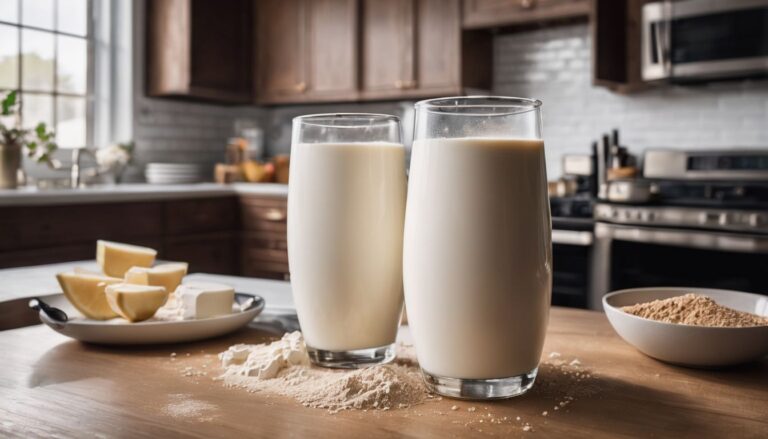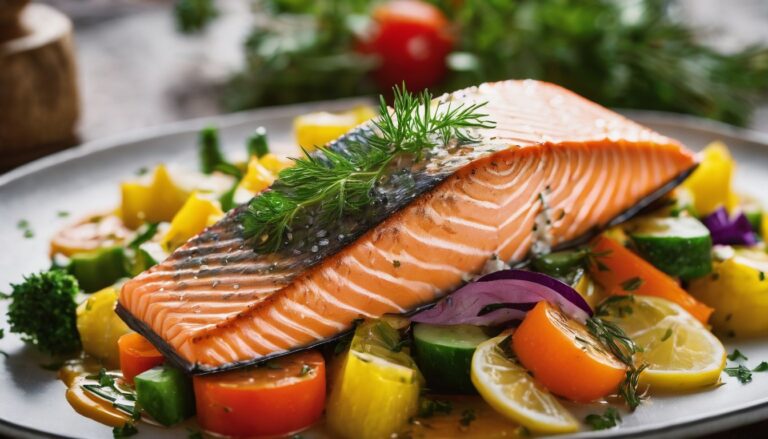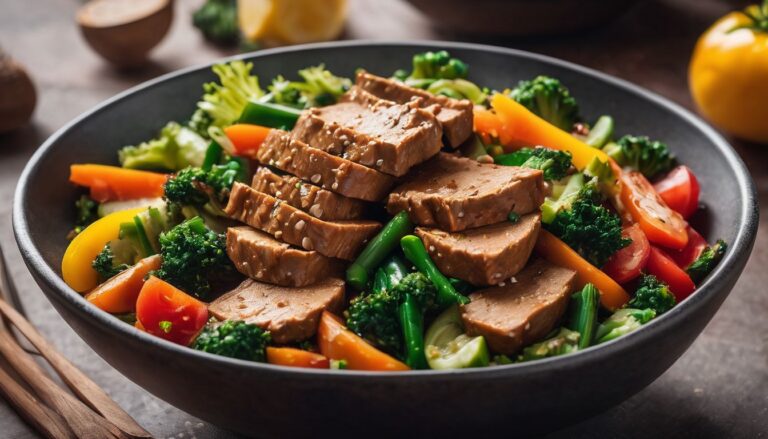Is Cabbage Really A Good Source Of Protein? Unveiling The Truth
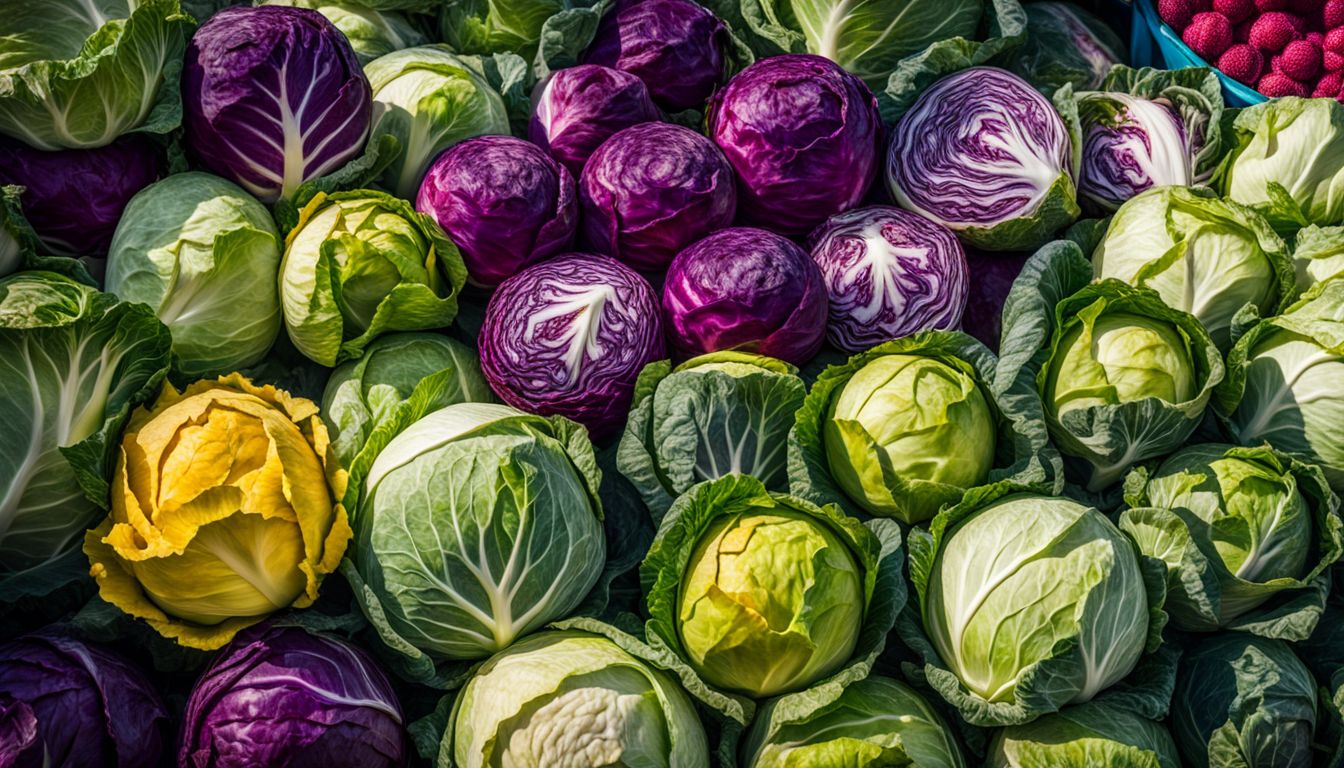
Cabbage, a leafy green often overshadowed by its more protein-rich vegetable counterparts, has sparked debate among nutritional experts and fitness enthusiasts alike. Is cabbage really a formidable source of protein? With my background as a nutritionist and countless hours spent researching plant-based diets, I’ve delved into the composition of this verdant vegetable to bring you science-backed insights.
Rich in essential vitamins and minerals with an unexpected contribution to your daily protein needs, cabbage is not just for coleslaw anymore.
Despite popular belief that vegetables can’t pack a punch in the protein department, cooked cabbage offers up 4 grams per half cup – not too shabby for a side dish! This article will peel back the leaves on why cabbage deserves a second look as part of your balanced diet.
Ready to change how you see this cruciferous veggie? Let’s discover all that it brings to the table.
Key Takeaways
- Cooked cabbage provides 4 grams of protein per half cup, making it a surprising protein source ideal for balancing plant-based diets or vegetarian lifestyles.
- Cabbage is rich in vitamin C, fiber, and low in calories, supporting immune system health, digestion, heart health, and bone strength.
- Incorporating cabbage into meals aids in energy boosting for physical activities and workouts while providing essential nutrients for muscle building and aiding post-workout recovery.
Benefits of Cabbage as a Source of Protein

Cabbage is not traditionally known as a high-protein food, but it does offer several benefits that make it a nutritious addition to a protein-rich diet. High in vitamin C, fiber, and low in calories, cabbage supports bone health and heart health, making it an excellent choice for overall well-being.
High in vitamin C

Eating cabbage is like giving your immune system a big high-five. It’s packed with vitamin C, which isn’t just for warding off colds; it also helps to repair your body’s tissues and keeps your teeth and bones strong.
A single cup of this crunchy veggie contains about 36 milligrams of vitamin C, making it an excellent dietary source of this essential nutrient.
Now imagine the combo punch you get when you mix that vitamin-rich cabbage into salads, slaws, or soups. Your skin gets in on the vitamin action too, benefiting from the antioxidant properties that help block some of the damage caused by free radicals.
With its low calorie count and superfood status, moving on to fiber-rich benefits seems almost as natural as enjoying a fresh serving of coleslaw at a summer picnic.
Good source of fiber

Cabbage packs a powerful punch of fiber, which is essential for keeping your digestive system running smoothly. Each cup of this crunchy vegetable provides a healthy dose of this key nutrient, helping to prevent constipation and maintain a healthy gut.
Fiber isn’t just good for digestion; it also plays a role in heart health by helping to lower cholesterol levels.
Adding cabbage to your diet can be an easy way to increase your fiber intake without adding excess calories. Whether you choose green or red cabbage, you’re making a wise choice for both your waistline and overall well-being.
Next up: how this leafy superfood contributes to stronger bones.
Improves bone health
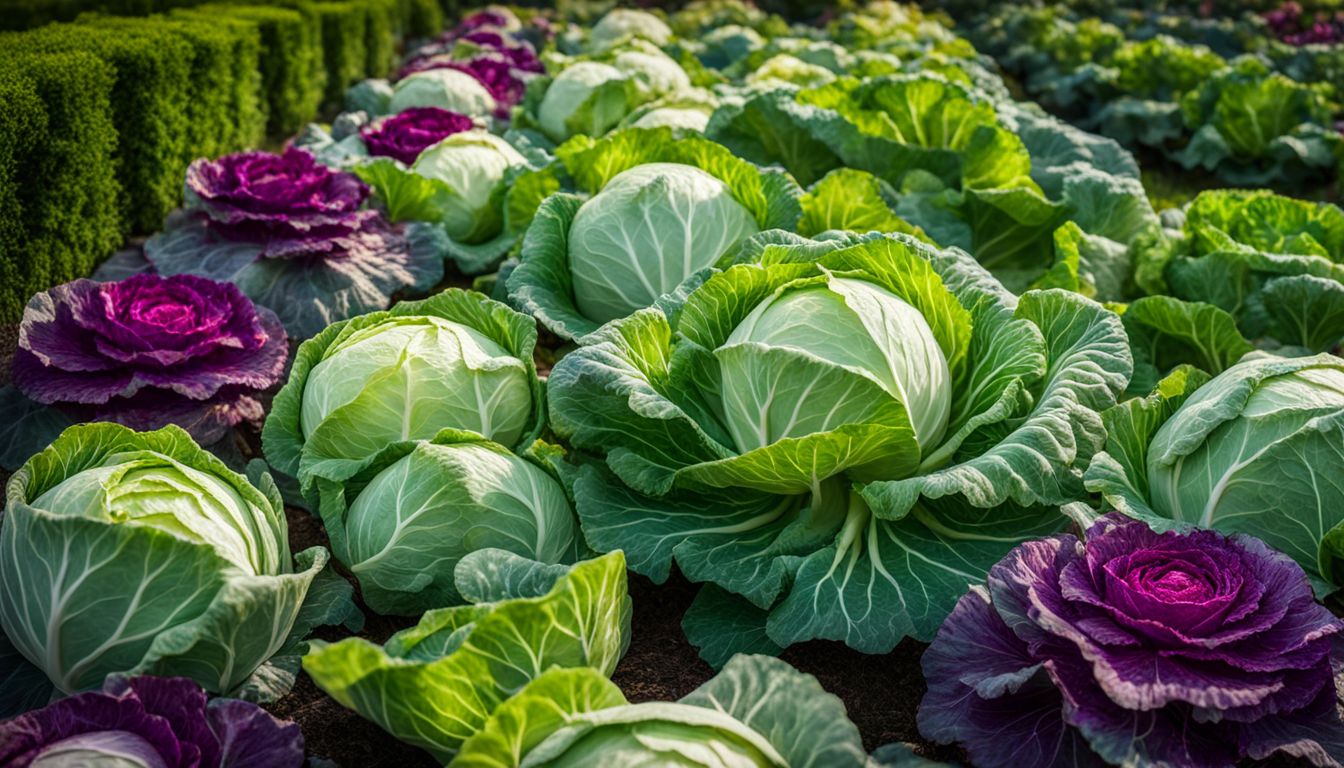
Just as its fiber content supports digestion, cabbage also plays a role in strengthening bones. This leafy green is loaded with vitamin K, an essential nutrient for bone health because it helps in the formation of osteocalcin—a protein required for stable bone matrix formation.
Consuming enough vitamin K can be especially crucial for maintaining strong and healthy bones over time.
Additionally, cabbage offers a good supply of minerals like calcium and potassium that are vital for bone density and overall skeletal integrity. Regularly including cabbage in your diet can contribute to the development and preservation of robust bones, which is particularly important as one ages to reduce the risk of fractures and osteoporosis.
Low in calories
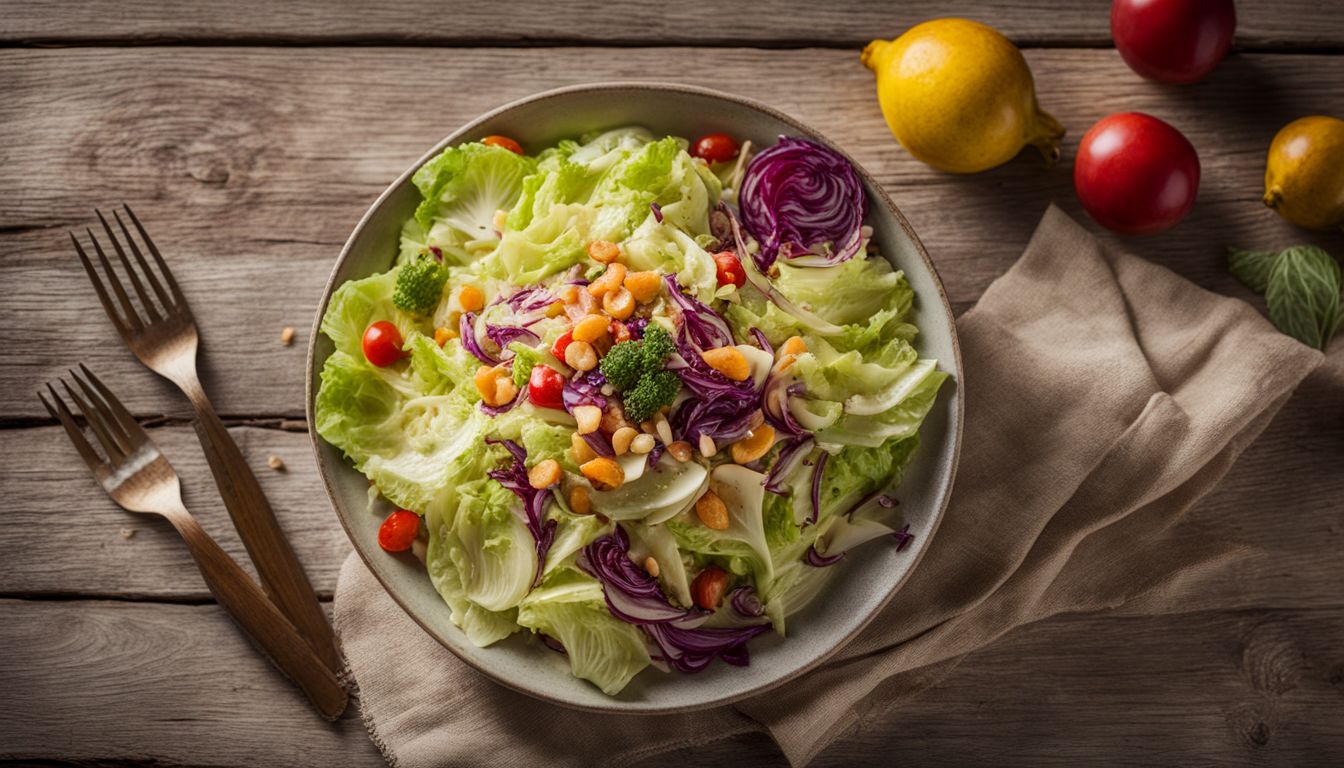
Improving bone health through regular cabbage consumption is significant, but its low-calorie nature also makes it an excellent addition to any diet. With only 22 calories per cup of chopped cabbage, it offers a high nutritional value without adding excessive calorie intake.
This characteristic renders cabbage as a strategic component for weight management and overall health maintenance.
Cabbage’s low-calorie content aligns with the goal of achieving sustainable weight loss or maintaining a healthy weight. Incorporating this nutrient-rich vegetable into meals not only provides essential nutrients but also contributes to creating balanced, filling dishes that support overall wellness.
Good for heart health

Consuming cabbage is beneficial for heart health due to its low calorie content and high levels of vitamin C. This nutrient-dense vegetable supports cardiovascular wellness by promoting healthy blood pressure levels and reducing the risk of heart disease.
Additionally, cabbage’s fiber content helps manage cholesterol levels, further contributing to a healthy heart. Regular inclusion of cabbage in your diet can provide essential nutrients that support overall heart health while making a flavorful addition to meals.
Cabbage’s positive impact on heart health stems from its ability to lower cholesterol and regulate blood pressure, primarily attributed to its impressive vitamin C and fiber content.
How Cabbage Helps with Sports Training and Workouts

Consuming cabbage as part of a balanced diet can help with sports training and workouts by providing essential nutrients for physical activity, boosting energy, aiding in muscle building, and supporting recovery and healing.
Boosts energy

Cabbage is a great choice to boost energy levels, containing essential nutrients such as vitamin C and fiber. These components aid in maintaining stamina and vigor during physical activity, making it an ideal addition to pre-workout meals or snacks.
The iron content in cabbage also supports the production of energy-boosting red blood cells.
Incorporating cabbage into your diet can provide the necessary nutritional support for sustained physical activities and workouts. Whether consumed raw in salads or added to cooked dishes, cabbage offers a natural power-up for active individuals seeking to maintain peak performance throughout the day.
Aids in muscle building

Supporting physical activity, cabbage aids in muscle building and post-workout recovery. With its rich nutrient profile, including vitamin C and phytosterols that can help reduce cholesterol, cabbage contributes to the repair and growth of muscles.
Additionally, the 4 grams of protein found in half a cup of cooked cabbage further supports muscle development and restoration after strenuous workouts. Consuming cabbage regularly can be beneficial for individuals looking to enhance their muscle-building efforts while maintaining a nutritious diet.
Supports recovery and healing

Aids in muscle building is key to quick recovery and healing. Cabbage, with its high nutrient content and anti-inflammatory properties, can aid in post-workout recovery and the healing process after physical exertion.
The rich vitamin C content helps in repairing damaged tissues, while the fiber supports digestive health, enabling better nutrient absorption essential for recovery.
Cabbage’s potential to reduce inflammation also plays a crucial role in promoting faster recovery from strenuous activities. Furthermore, its contribution to overall bone health fortifies the body against injuries and supports faster healing of any bone-related issues.
Provides essential nutrients for physical activity

Cabbage is a valuable addition to the diet for active individuals as it provides essential nutrients for physical activity. With its high vitamin C content, it supports the immune system and aids in reducing inflammation, facilitating quicker recovery from workouts.
Additionally, cabbage is rich in fiber, aiding digestion and promoting overall gut health – crucial for maintaining energy levels during exercise.
Moreover, the presence of glucosinolates in cabbage makes it an excellent choice to support muscle building and recovery post-exercise. These nutrients also contribute to its cancer-fighting properties which are beneficial for long-term health maintenance.
Other Health Benefits of Cabbage
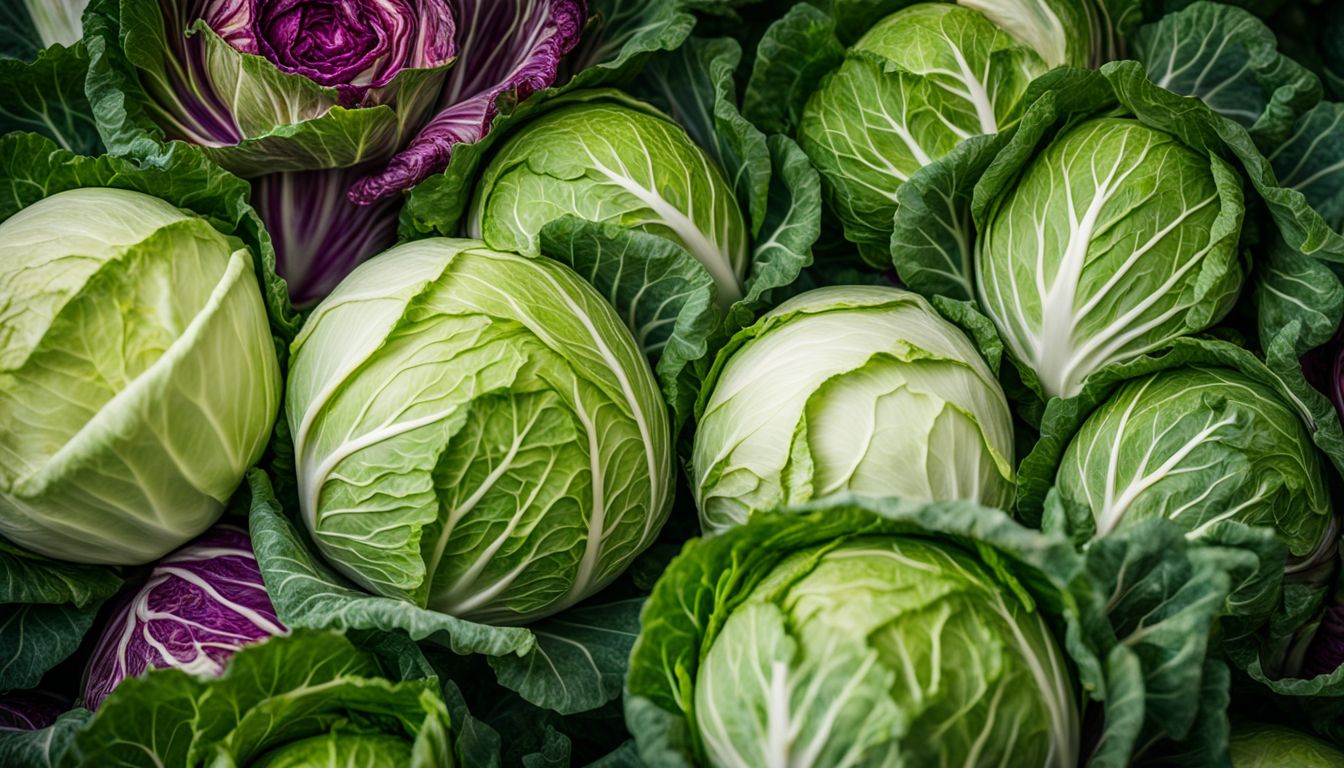
Cabbage may also reduce inflammation, fight cancer, aid in digestion, and provide high levels of vitamin K. Read on to uncover more about the health benefits of this nutrient-rich vegetable.
Reduces inflammation
Rich in glucosinolates, cabbage possesses anti-inflammatory properties that can help reduce inflammation in the body. These compounds have been shown to inhibit the production of certain pro-inflammatory substances, potentially providing relief for conditions such as arthritis and other inflammatory-related ailments.
Incorporating cabbage into your diet may contribute to managing chronic inflammation and promoting overall wellness.
Moreover, the high vitamin C content in cabbage can also aid in reducing inflammation by combating oxidative stress and supporting the body’s immune response. Including this versatile vegetable in your meals may offer an effective way to naturally address inflammatory issues while enjoying its numerous health benefits.
May fight cancer

Cabbage is rich in glucosinolates, compounds that have been studied for their potential to combat cancer. These bioactive substances in cabbage may help protect against certain types of cancer by supporting the body’s natural defense mechanisms.
With its high levels of anti-inflammatory and antioxidant properties, incorporating cabbage into your diet can be a valuable addition to potentially reduce the risk of developing cancer.
Furthermore, the presence of vitamin C in cabbage plays a role in fighting off free radicals and strengthening the immune system, offering another layer of defense against cancer. Research suggests that including cabbage as part of a balanced and varied diet could contribute to promoting overall health while assisting in possible protection against certain types of cancers.
Can aid in digestion
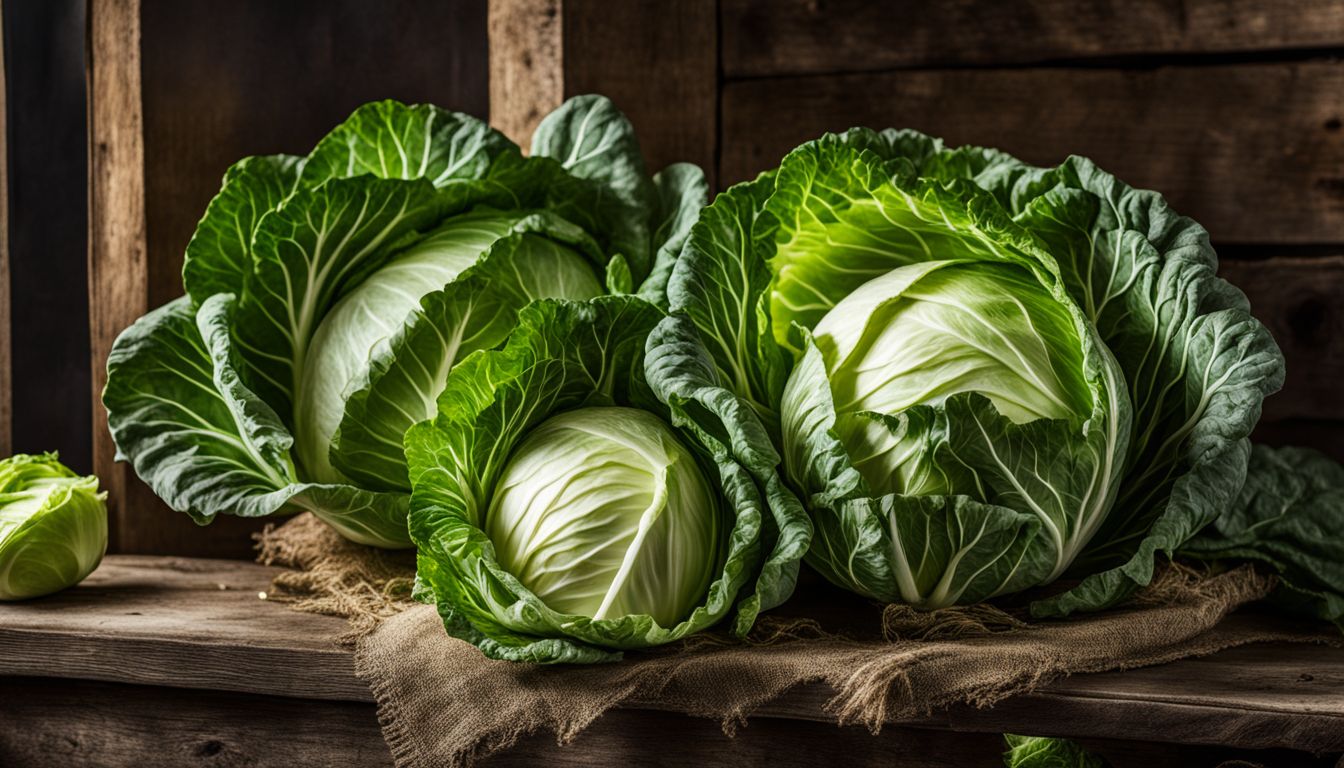
Cabbage can aid in digestion due to its high fiber content, which supports a healthy digestive system by promoting regular bowel movements and preventing constipation. Additionally, the natural prebiotics found in cabbage promote the growth of beneficial gut bacteria, contributing to improved digestion and overall gut health.
Moreover, the glucosinolates present in cabbage have been linked to reduced inflammation in the digestive tract, potentially alleviating symptoms of conditions like gastritis and inflammatory bowel diseases.
Furthermore, consuming cabbage raw or fermented provides valuable enzymes that support efficient digestion and nutrient absorption. Including this versatile vegetable in your diet not only enhances digestive function but also contributes essential nutrients for overall well-being.
High in vitamin K
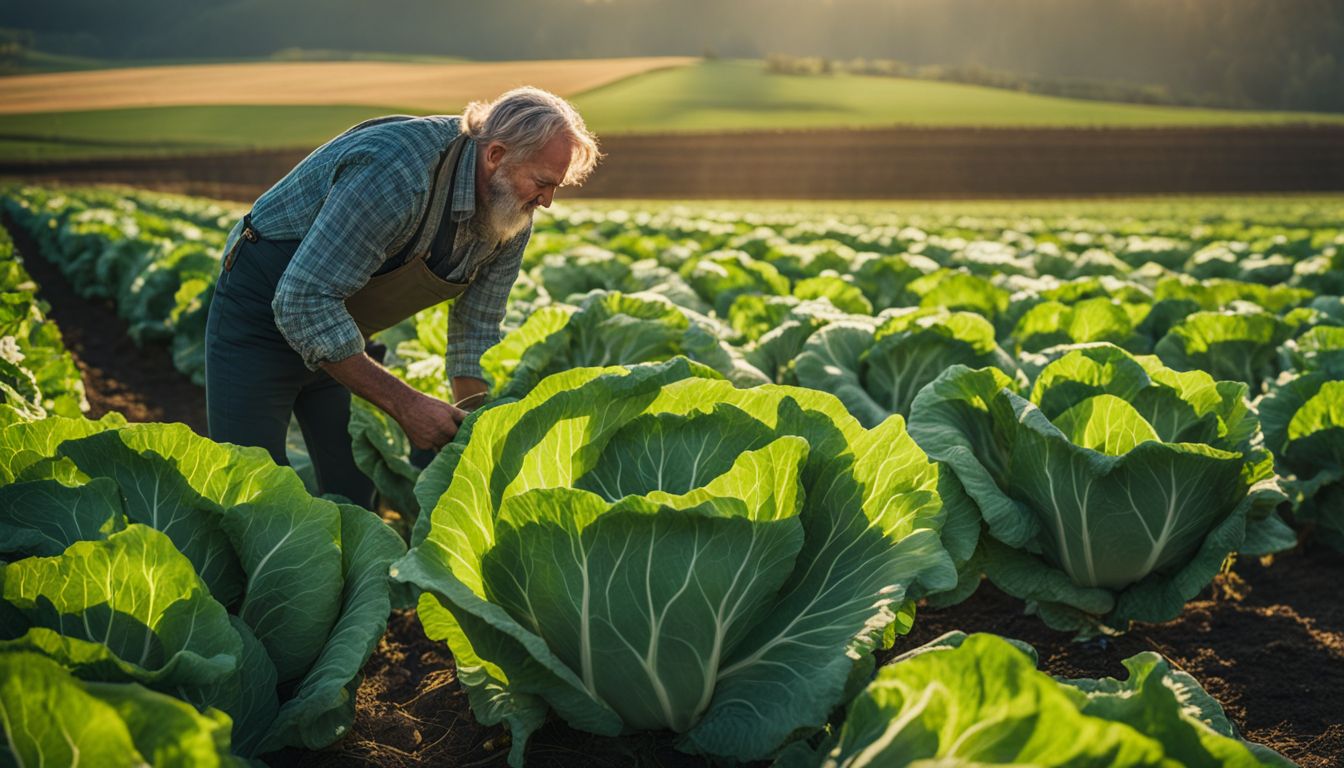
Transitioning from its digestive benefits, cabbage is also notable for being high in vitamin K. This essential nutrient plays a crucial role in bone health, as it aids in the proper absorption of calcium and helps regulate blood clotting.
Just one cup of raw green cabbage contains nearly 85% of the recommended daily value of vitamin K, making it an excellent choice to support overall bone density and strength.
In addition to its impact on bone health, the ample presence of vitamin K in cabbage offers potential anti-inflammatory effects and supports heart health. With these valuable benefits, including cabbage in your diet can significantly contribute to your overall well-being.
Conclusion

In conclusion, the nutrient-rich cabbage offers many health benefits, including being a good source of protein. Its high fiber content and vitamin K make it a valuable addition to any diet.
With practical cooking methods for maximum nutrition retention, it can be an excellent dietary source of macronutrients. Have you considered incorporating cabbage into your meals for its nutritious benefits? Take advantage of these health advantages and explore the various ways that this overlooked superfood can contribute to your well-being.
Embrace the potential weight loss benefits of cabbage as part of a plant-based diet or vegetarian lifestyle, leading to improved health outcomes and overall wellness.
FAQs
1. Can cabbage be considered a good source of protein?
Cabbage is not a significant source of protein as it contains only minimal amounts.
2. What nutrients does cabbage provide besides protein?
In addition to protein, cabbage is a good source of fiber, vitamins C and K, and various antioxidants.
3. Are there any other plant-based sources of protein that can be consumed instead of cabbage?
Yes, other plant-based options such as legumes (beans, lentils), quinoa, tofu, tempeh, and edamame are better sources of protein than cabbage.
4. How does the protein content in cabbage compare to other common vegetables?
Compared to vegetables like spinach or broccoli, cabbage has lower levels of protein.
5. Is it possible to include cabbage in a balanced diet for its nutritional benefits despite its low protein content?
Yes, incorporating cabbage into your diet can still be beneficial due to its high fiber and vitamin content.
Sources referenced in this article
- https://www.healthline.com/nutrition/benefits-of-cabbage
- https://www.webmd.com/diet/health-benefits-cabbage
- https://www.health.com/food/health-benefits-of-cabbage
- https://www.medicalnewstoday.com/articles/284823
- https://bestfreshmart.com.sg/blogs/articles/a-closer-look-at-cabbage-unveiling-its-nutrient-packed-benefits
- https://health.clevelandclinic.org/benefits-of-cabbage/
- https://cancercenterforhealing.com/cabbage-and-cancer-protection/

Author
Years ago, the spark of my life’s passion ignited in my mind the moment I stepped into the local gym for the first time. The inaugural bead of perspiration, the initial endeavor, the very first surge of endorphins, and a sense of pride that washed over me post-workout marked the beginning of my deep-seated interest in strength sports, fitness, and sports nutrition. This very curiosity blossomed rapidly into a profound fascination, propelling me to earn a Master’s degree in Physical Education from the Academy of Physical Education in Krakow, followed by a Sports Manager diploma from the Jagiellonian University. My journey of growth led me to gain more specialized qualifications, such as being a certified personal trainer with a focus on sports dietetics, a lifeguard, and an instructor for wellness and corrective gymnastics. Theoretical knowledge paired seamlessly with practical experience, reinforcing my belief that the transformation of individuals under my guidance was also a reflection of my personal growth. This belief holds true even today. Each day, I strive to push the boundaries and explore new realms. These realms gently elevate me to greater heights. The unique combination of passion for my field and the continuous quest for growth fuels my drive to break new ground.




